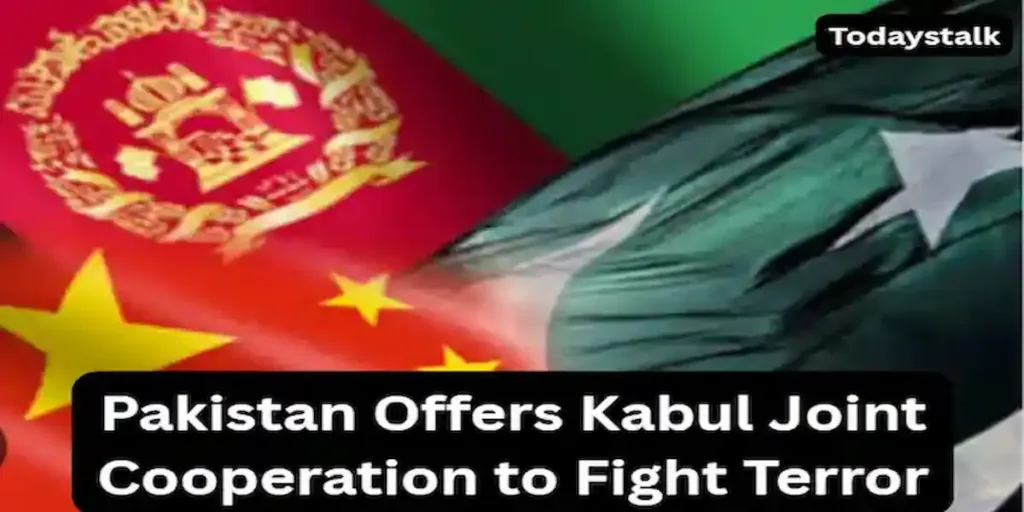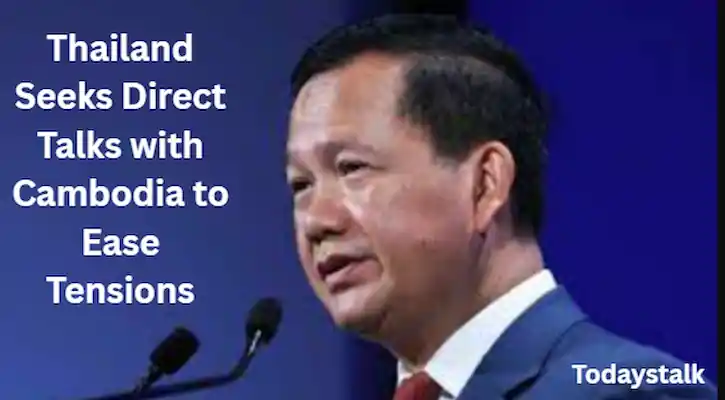The move where Pakistan offers Kabul to jointly fight terror represents a critical step toward achieving stability in South Asia.
In a significant diplomatic move, Pakistan offers Kabul to jointly fight terror, urging the Afghan authorities to work collaboratively in addressing rising security concerns along the shared border.
As cross-border attacks and militant infiltration threaten regional stability, this proposal emphasizes the necessity of a unified approach to dismantle terrorist networks operating in both countries.
The Need for Regional Cooperation
The security situation along the Pakistan-Afghanistan border has remained fragile, with frequent reports of militant groups using the porous frontier for movement and operations.
Over the past few months, Pakistan has witnessed an uptick in attacks in its border regions, often attributed to militants finding safe havens across the border in Afghanistan.
Recognizing the need for joint action, Pakistan offers Kabul to jointly fight terror, emphasizing that both nations share the burden of ensuring peace and security in the region.
Islamabad has highlighted that without a cooperative mechanism, it will remain challenging to dismantle terrorist infrastructure effectively.
Pakistan’s Call for Border Security Mechanisms
Pakistan’s proposal includes the establishment of joint border security mechanisms to monitor infiltration routes, enhance patrol coordination, and develop intelligence-sharing channels.
The Pakistani leadership has stated that such collaboration would prevent militants from exploiting the lack of coordination between the two countries.
While Pakistan offers Kabul to jointly fight terror, officials have also emphasized the importance of addressing the root causes of militancy, including economic deprivation, lack of governance, and ideological radicalization, which continue to fuel instability across the region.

Afghanistan’s Response and Challenges
The interim Afghan government led by the Taliban has publicly stated its commitment to ensuring that Afghan soil is not used for attacks against any country.
However, concerns persist within Pakistan regarding the presence of banned outfits and their operational capacities within Afghanistan.
As Pakistan offers Kabul to jointly fight terror, Kabul’s response will determine the effectiveness of this proposal.
Regional analysts believe that while the Taliban may engage in dialogue, practical challenges such as internal security limitations, lack of structured institutions, and factional differences within Afghanistan could affect progress.
Importance of Intelligence Sharing
One of the key components of Pakistan’s proposal is intelligence sharing to track and neutralize terrorist cells operating across the border.
Islamabad has highlighted past instances where the lack of timely intelligence exchange enabled militant groups to regroup and launch attacks, resulting in civilian and security personnel casualties.
By ensuring real-time information exchange, Pakistan offers Kabul to jointly fight terror with a practical strategy that can disrupt planned attacks and dismantle logistical networks that sustain these groups.
The Impact on Border Communities
Border communities on both sides of the Durand Line have faced the brunt of cross-border terrorism, with frequent disruptions to livelihoods, displacement due to security operations, and fear of militant reprisals.
The proposal for joint anti-terror operations includes plans to create safe zones and enhance civilian protection measures.
While Pakistan offers Kabul to jointly fight terror, there is a clear acknowledgment that protecting civilians and ensuring stability in border areas will foster better relations between the two countries while addressing humanitarian concerns.
Regional and Global Stakeholders Welcome Cooperation
Regional stakeholders, including China, Iran, and Central Asian states, have expressed support for cooperation between Pakistan and Afghanistan in countering terrorism.
Stability in Afghanistan is crucial for regional connectivity projects, Like the China-Pakistan Economic Corridor and energy initiatives.
Additionally, global powers, including the United States and Russia, have shown interest in regional cooperation frameworks.
Understanding that Afghanistan’s stability has far-reaching implications for global counter-terrorism efforts.
Pakistan offers Kabul to jointly fight terror aligns with broader goals of combating extremism while stabilizing the region.
Analyst Perspectives on Joint Efforts
Security analysts highlight that the joint fight against terror can only succeed if trust is built between the two countries.
Past cooperation efforts have often failed due to mutual suspicion, incomplete commitments, and divergent priorities.
Therefore, while Pakistan offers Kabul to jointly fight terror, it will require sustained diplomatic engagement, trust-building measures, and transparency to ensure long-term success.
Furthermore, analysts stress that counter-terror efforts must go hand in hand with socio-economic development in border areas to address the underlying factors that allow militant recruitment and safe havens to persist.
Pakistan’s Broader Counter-Terror Strategy
The recent offer to Kabul aligns with Pakistan’s broader counter-terror strategy, which includes:
- Securing borders through fencing, surveillance, and patrols.
- Engaging in regional diplomacy to foster cooperation on security issues.
- Targeting terror financing by tracking money laundering and illegal transfers.
- Investing in development in conflict-prone areas to weaken militant appeal.
As Pakistan offers Kabul to jointly fight terror, it underscores its intent to address militancy comprehensively, using a mix of military, diplomatic, and developmental tools.
Future Outlook
The path ahead will require consistent dialogue between Pakistan and Afghanistan, focusing on shared interests rather than differences.
Successful collaboration could significantly reduce the operational capabilities of terrorist networks that exploit the border regions, paving the way for regional peace and prosperity.
However, challenges such as the Taliban’s ability to control all factions within Afghanistan, issues of mutual mistrust.
The broader geopolitical environment will influence the progress of this joint effort.
Conclusion: A Step Towards Regional Stability
The move where Pakistan offers Kabul to jointly fight terror represents a critical step toward achieving stability in South Asia.
By proposing structured cooperation, Islamabad signals its readiness to move beyond blame games, focusing instead on practical solutions to the persistent threat of terrorism.
For Afghanistan, accepting this offer provides an opportunity to demonstrate its commitment to regional peace while gaining access to resources and coordination that can strengthen its internal security.
Ultimately, regional cooperation, backed by sustained commitment and community-centric policies, is essential for defeating terrorism and fostering stability that benefits both nations and the broader region.










 Bitcoin
Bitcoin  Ethereum
Ethereum  XRP
XRP  Tether
Tether  Solana
Solana  TRON
TRON  Dogecoin
Dogecoin  Litecoin
Litecoin